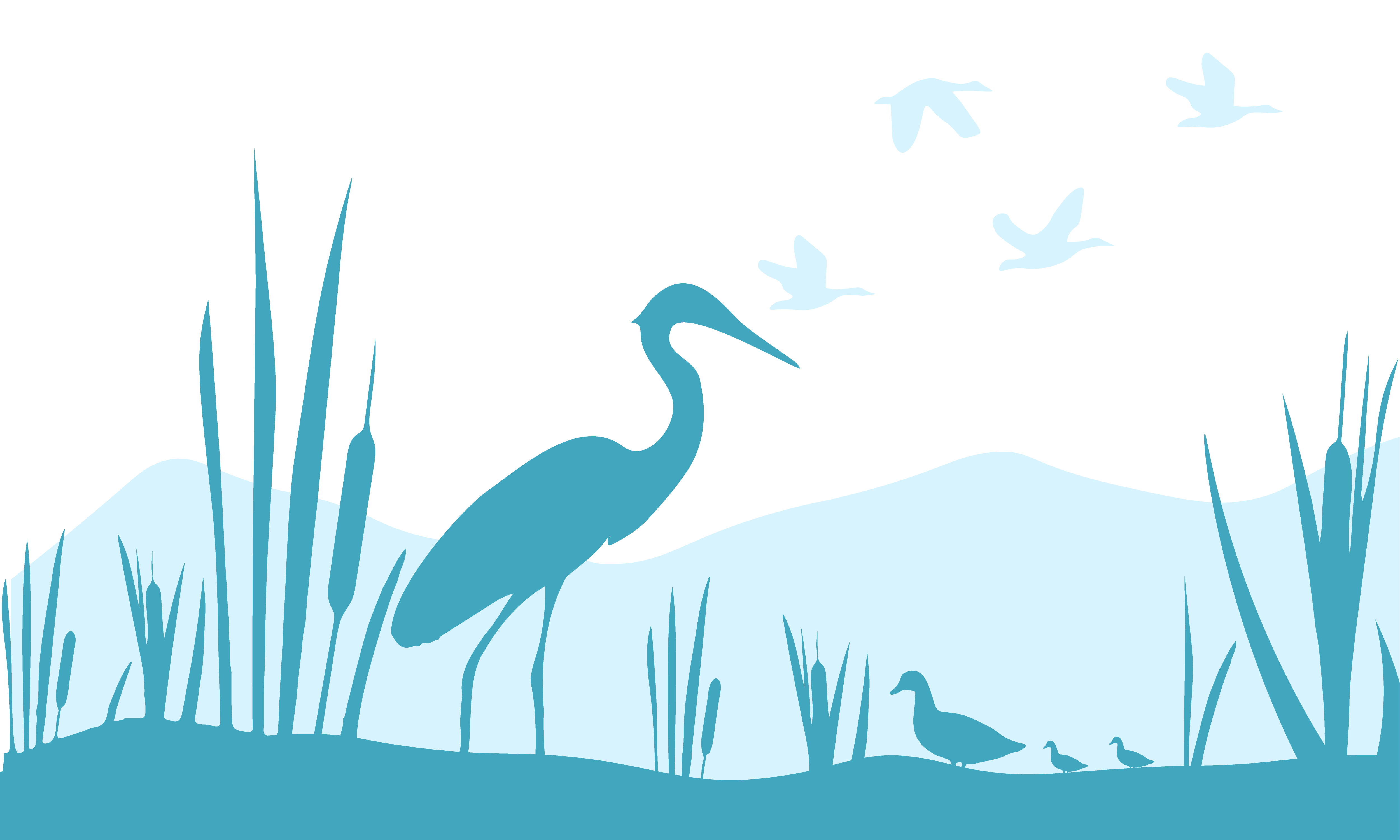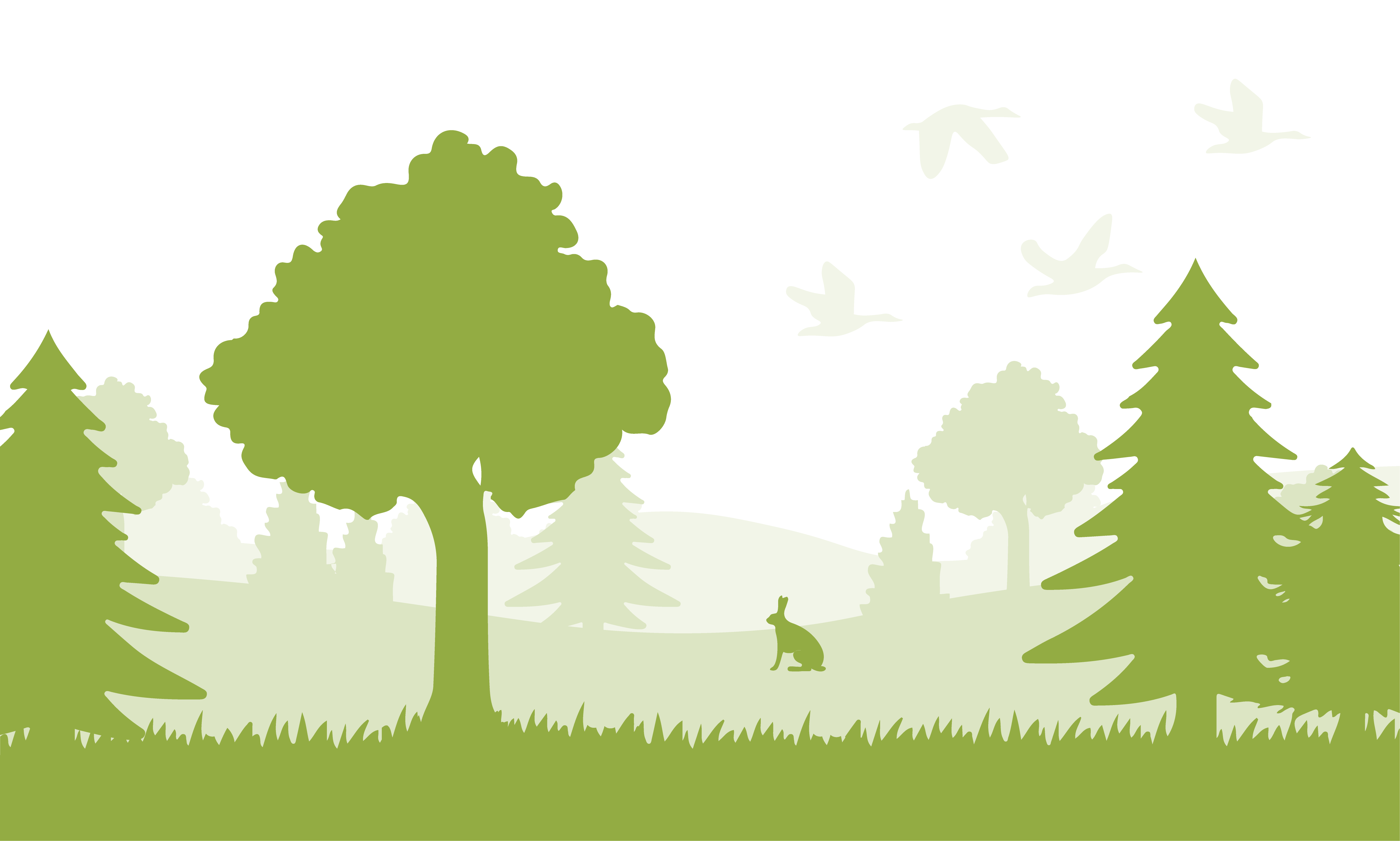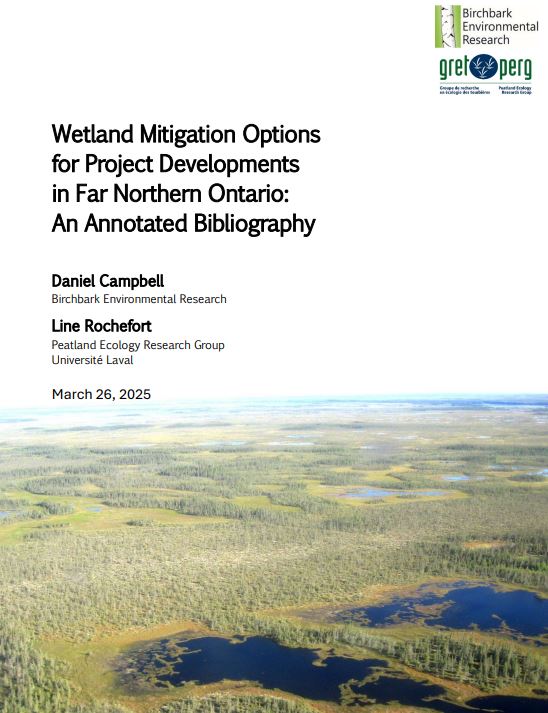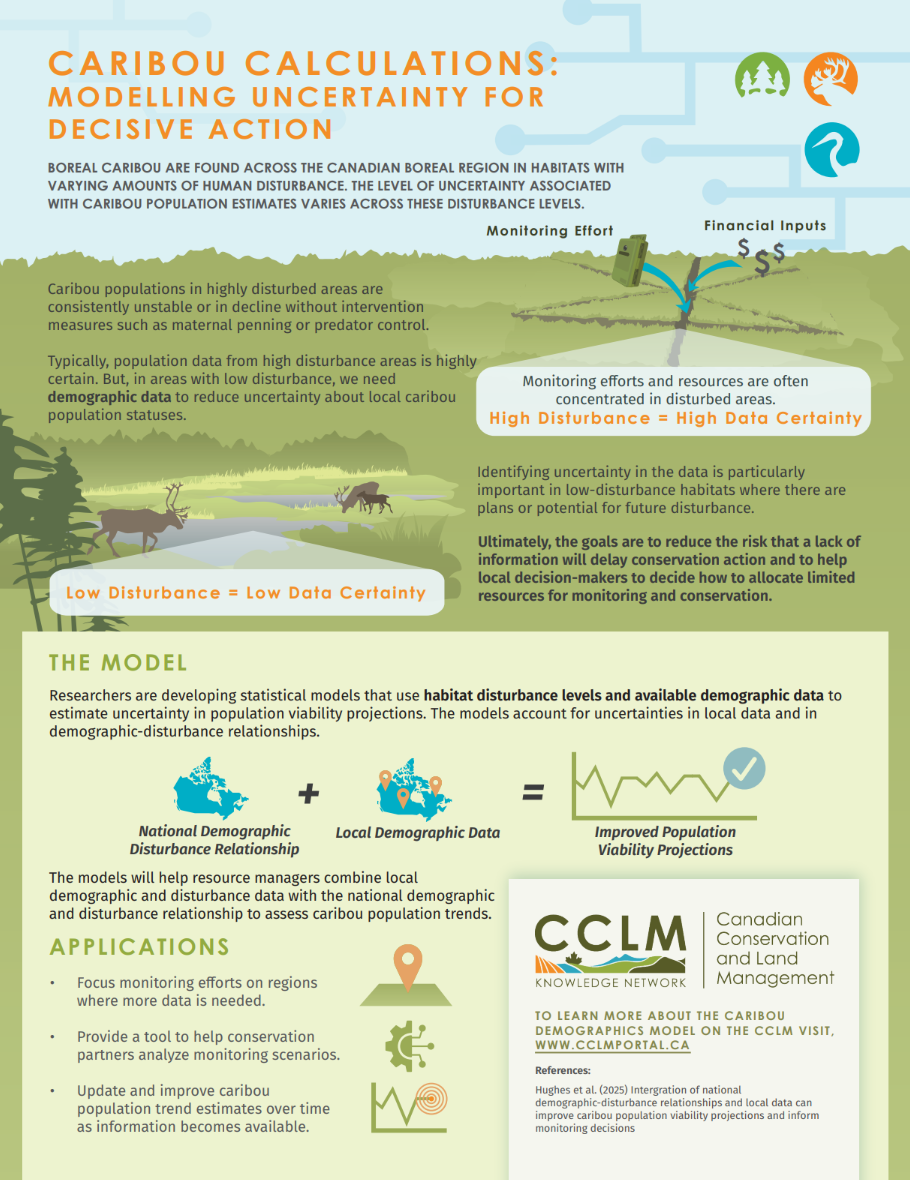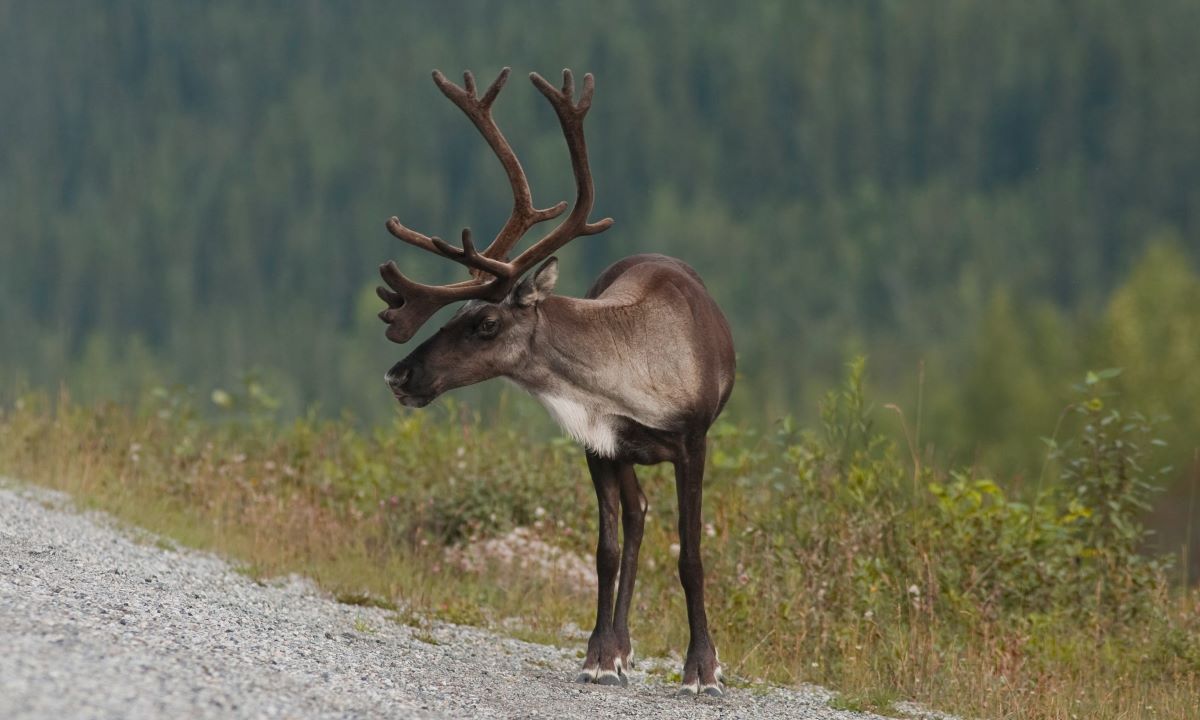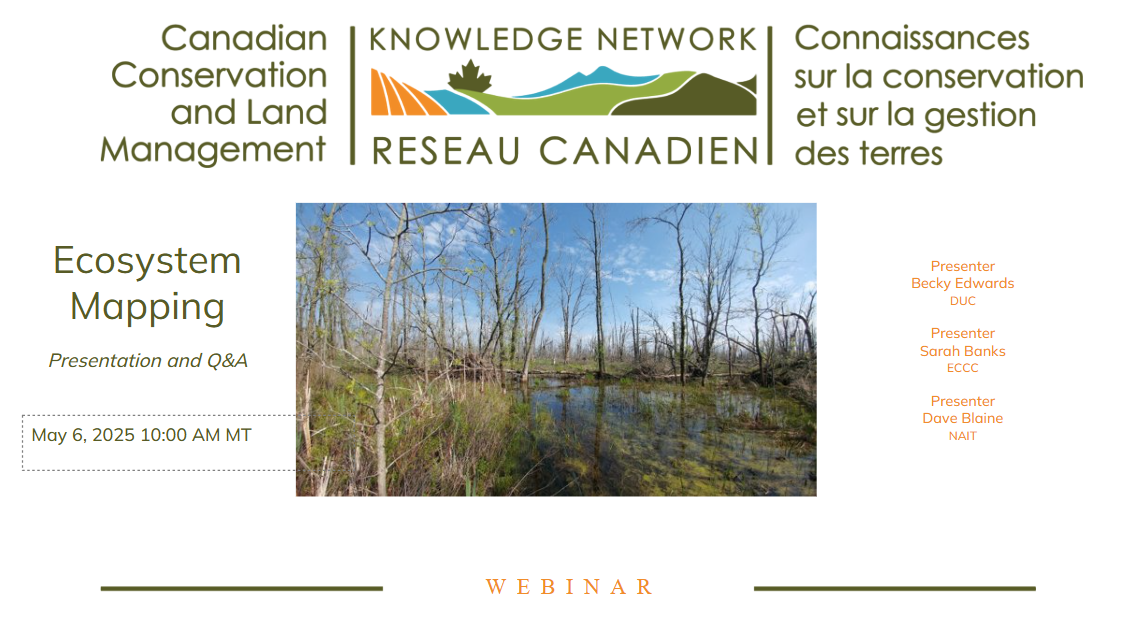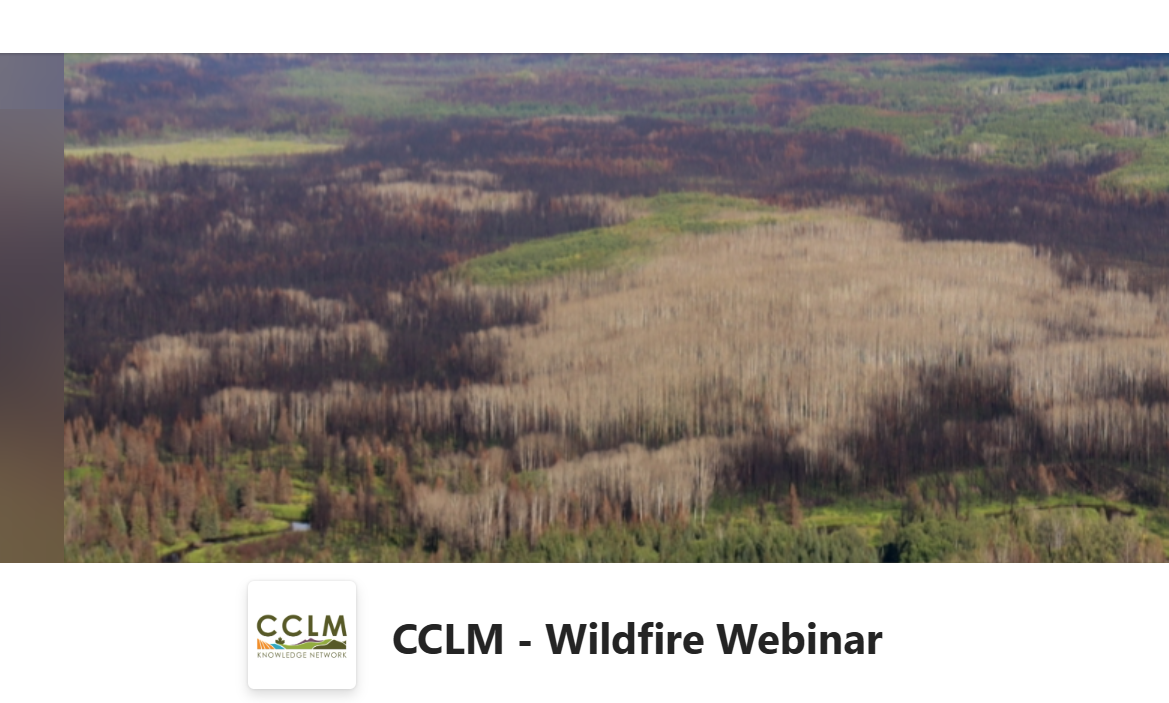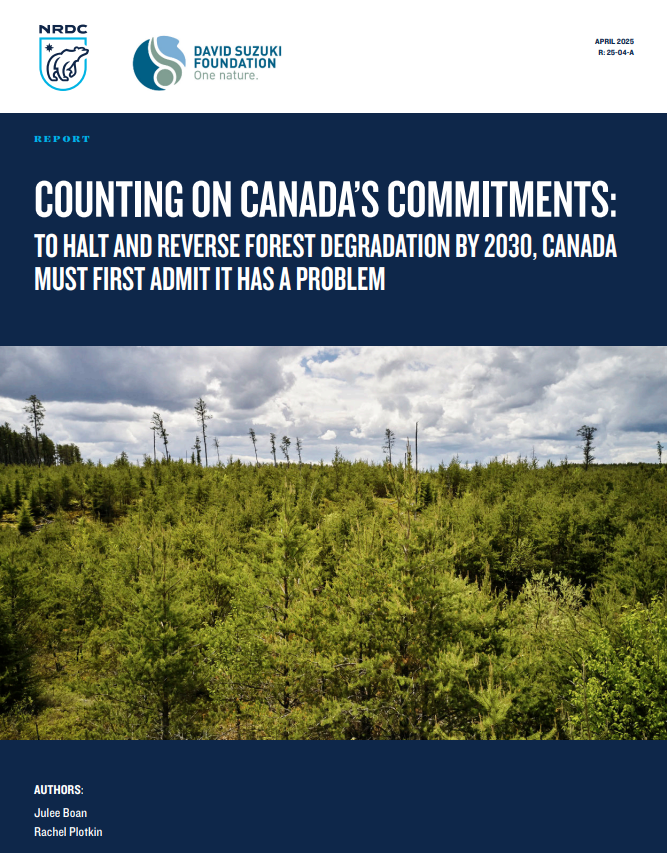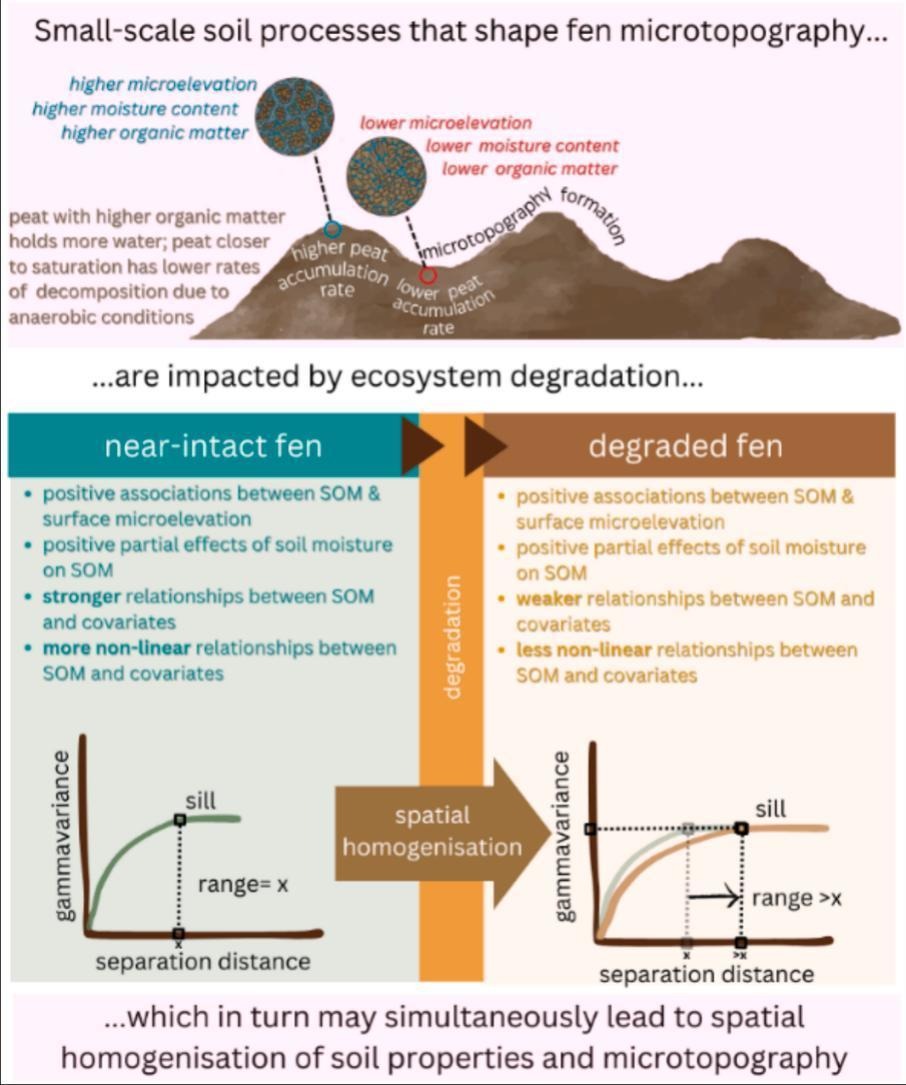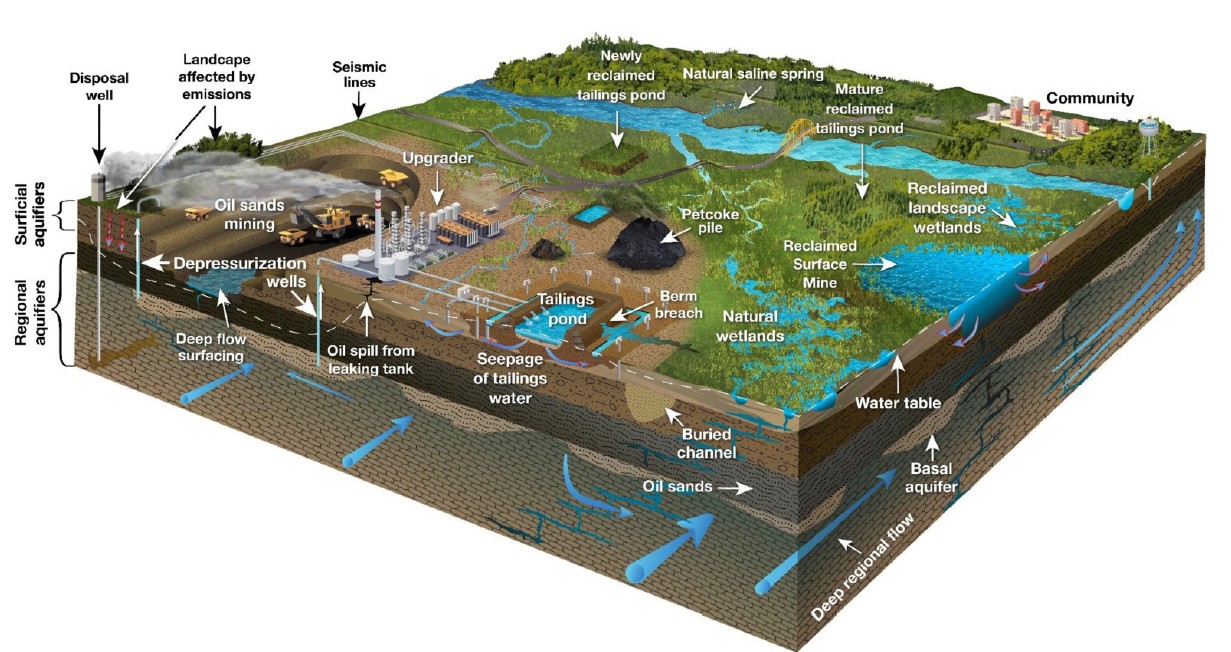Natural Resources Canada (NRCan) (646)
Government of Alberta (GoA) (472)
University of Alberta (UofA) (383)
2 Billion Trees (2BT) (361)
Ducks Unlimited Canada (DUC) (321)
Canadian Land Reclamation Association (CLRA) (260)
Alberta Biodiversity Monitoring Institute (ABMI) (222)
InnoTech Alberta (ITA) (209)
Environment and Climate Change Canada (ECCC) (209)
NAIT Centre for Boreal Research (NAIT CBR) (184)
Alberta Oil Sands Environmental Research Program (AOSERP) (181)
National Boreal Caribou Knowledge Consortium (NBCKC / CNSCB) (141)
University of Waterloo (133)
University of Calgary (UofC) (128)
Laval University (121)
fRI Research (120)
Government of Northwest Territories (GNWT) (104)
Ressources naturelles Canada (RNCan) (98)
2 Milliards d'arbres (2GA) (95)
Petroleum Technology Alliance Canada (PTAC) (84)
University of British Columbia (UBC) (83)
Northern Caribou Canada (82)
University of Saskatchewan (UofS) (78)
Syncrude Canada Ltd. (SCL) (63)
Government of British Columbia (62)
Canada's Oil Sands Innovation Alliance (COSIA) (58)
Université du Québec à Rimouski (55)
Oil Sands Research and Information Network (OSRIN) (55)
Caribou Monitoring Unit - Alberta Biodiversity Monitoring Institute (53)
University of Guelph (UofG) (51)
McMaster University (50)
University of Montana (48)
Regional Industry Caribou Collaboration (46)
Government of Quebec (46)
Trent University (46)
Reclamation Research Technical Advisory Committee (RRTAC) (41)
Parks Canada Agency (41)
University of Victoria (UVic) (41)
Government of Ontario (41)
Society for Ecological Restoration (SER) (40)
University of Northern British Columbia (UNBC) (40)
University of Lethbridge (UofL) (39)
Memorial University of Newfoundland (37)
Carleton University (36)
Canadian Conservation and Land Management Knowledge Network (CCLM) (36)
University of Toronto (UofT) (35)
University of Montreal (32)
University of Alaska Fairbanks (30)
Alberta Watershed Planning & Advisory Councils (28)
Wilfrid Laurier University (26)
Alberta Soil Science Workshop (ASSW) (26)
University of Manitoba (26)
SALMTEC (26)
Canadian Institute of Forestry (25)
Golder Associates Ltd. (23)
University of Helsinki (23)
University of Quebec (22)
Alberta Institute of Agrologists (22)
Suncor Energy Inc. (21)
McGill University (21)
Université du Québec à Montréal (21)
Gamberg Consulting (21)
Fuse Consulting Ltd. (20)
Government of Newfoundland and Labrador (20)
BC Wildlife Federation (20)
Alberta Innovates (20)
Université de Sherbrooke (19)
Government of Yukon (19)
Canadian Broadcasting Corporation (CBC) (19)
TC Energy (18)
Vertex Environmental Inc. (17)
Natural Resources Institute Finland (17)
Government of Saskatchewan (17)
Environmental Services Association of Alberta (ESAA) (17)
Government of Nunavut (17)
Indigenous Knowledge Circle (IKC) of the NBCKC (17)
University of Eastern Finland (16)
Sahtú Renewable Resources Board (16)
The North Saskatchewan Watershed Alliance (16)
Dalhousie University (15)
Agriculture and Agri-Food Canada (15)
Wildlife Infometrics Inc. (15)
Torngat Wildlife Plants & Fisheries Secretariat (15)
Government of Canada (15)
Alberta Regional Caribou Knowledge Partnership (15)
Athabasca University (14)
University of Western Ontario (14)
Fort Nelson First Nation (14)
Beverly and Qamanirjuaq Caribou Management Board (14)
Paragon Soil and Environmental Consulting (14)
Wek'èezhìı Renewable Resources Board (13)
Cumulative Environmental Management Association (CEMA) (13)
University of California (13)
Laurentian University (13)
Birds Canada (13)
Society of Wetland Scientists (12)
The Nature Conservancy (12)
Lakehead University (12)
Cows and Fish (12)
Global Institute for Water Security (12)
Government of Manitoba (12)
Queen's University (12)
Gwich'in Renewable Resources Board (11)
Wildlife Conservation Society Canada (11)
Centre d'Études Nordiques, Université Laval (11)
Alberta Centre for Reclamation and Restoration Ecology (ACRRE) (11)
Grassland Restoration Forum (GRF) (11)
Government of Alaska (11)
FPInnovations (10)
Cenovus Energy (10)
United States Department of Agriculture (USDA) (10)
Lund University (10)
Mount Royal University (10)
National Council for Air and Stream Improvement, Inc. (10)
Miistakis Institute (10)
National Park Service (10)
EcoLogic Research (10)
Tolko Industries Ltd. (10)
University of Plymouth (10)
West Fraser (9)
Enviro Q & A Services (9)
WSP E&I Canada Ltd. (9)
Cameco Corporation (9)
Saskatchewan Research Council (SRC) (9)
Chinese Academy of Sciences (9)
United States Geological Survey (9)
Swedish University of Agricultural Sciences (9)
University of Exeter (9)
Fisheries and Oceans Canada (DFO) (9)
TransAlta Corporation (9)
The Ramsar Convention Secretariat (9)
West Moberly First Nations (9)
Athabasca Chipewyan First Nation (9)
Simon Fraser University (9)
National Tree Seed Centre (9)
Aboriginal Environmental Services Network (AESN) - No longer active (9)
Alberta Pacific Forest Industries Inc. (8)
Forest Products Association of Canada (8)
Northern Alberta Institute of Technology (NAIT) (8)
Alberta Energy Regulator (AER) (8)
University of Greifswald (8)
Stockholm University (8)
Concordia University (8)
Université du Québec en Abitibi-Témiscamingue (8)
Millennium EMS Solutions Ltd. (8)
University College Dublin (8)
Yukon University (8)
CircumArctic Rangifer Monitoring and Assessment Network (8)
Saulteau First Nations (8)
Equilibrium Environmental inc. (8)
State University of New York (8)
Alberta Native Plant Council (ANPC) (7)
Government of Nova Scotia (7)
Finnish Meteorological Institute (7)
University of Copenhagen (7)
University of Tartu (7)
Nature United (7)
University of Ottawa (7)
University of New Brunswick (UNB) (7)
Nunatsiavut Government (7)
Mikisew Cree First Nation (7)
Canadian Association of Petroleum Producers (CAPP) (7)
The Firelight Group (7)
Łutsel Kʼe Dene First Nation (7)
ECO Canada (7)
Weyerhaeuser Company (6)
Circle T Consulting (6)
Colorado State University (6)
Southern Illinois University (6)
Canadian Parks and Wilderness Society (6)
Michigan Technological University (6)
University of Leeds (6)
Russian Academy of Science (6)
Stanford University (6)
University of New Hampshire (6)
Zhejiang University (6)
Porcupine Caribou Management Board (6)
Pembina Institute (6)
Mighty Peace Watershed Alliance (6)
Fort McKay First Nation (6)
Canadian Natural Resources Limited (CNRL) (6)
Indigenous Leadership Initiative (6)
David Suzuki Foundation (6)
University Paris-Saclay (6)
BrettYoung (6)
U.S. Fish and Wildlife Service (6)
United States Forest Service (6)
Boreal Ecosystem Recovery and Assessment (BERA) (6)
Natural Assets Initiative (6)
Red Deer River Watershed Alliance (6)
Alberta Wilderness Association (6)
Utah State University (6)
Millar Western Forest Products Ltd. (5)
Canfor Corporation (5)
Manitoba Hydro (5)
Unknown (5)
Evergreen Learning and Innovation Society (5)
University of Birmingham (5)
Cold Lake First Nations (5)
University of Wisconsin-Madison (5)
Canadian Boreal Forest Agreement Secretariat (5)
Oregon State University (5)
Alberta Chapter of the Wildlife Society (5)
Northern Arizona University (5)
Teck Resources Limited (5)
LGL Limited Environmental Research Associates (5)
Yellowstone to Yukon Conservation Innitiative (5)
University of Oulu (5)
Trinity College Dublin (5)
Global Peatlands Initiative (5)
Yale University (5)
Integrated Ecological Research (5)
Conservation through Reconciliation Partnership (5)
University of Regina (5)
Vuntut Gwitchin First Nation (5)
United Nations (5)
Advisory Committee for Cooperation on Wildlife Management (5)
WSP (5)
East China Normal University (5)
Nipissing University (5)
Toronto Metropolitan University (5)
Rutgers University (5)
Braiding Knowledges Canada (5)
Smoky River Coal Limited (4)
Land Conservation and Reclamation Council (LCRC) (4)
Harvard University (4)
Alberta Lake Management Society (4)
Lehigh University (4)
Alberta-Pacific Forest Industries (4)
Explor (4)
Chu Cho Environmental (4)
UiT The Arctic University of Norway (4)
GFZ German Research Center for Geosciences (4)
University of Potsdam (4)
University of Winnipeg (4)
University of Oslo (4)
University of Rostock (4)
Aarhus University (4)
Caribou Ecological Consulting (4)
Greenland Institute of Natural Resources (4)
Naskapi Nation of Kawawachikamach (4)
NunatuKavut Community Council (4)
University of Alaska Anchorage (4)
Ministère des Ressources naturelles et de la faune (4)
Manitoba Métis Federation (4)
Peatland Ecology Research Group (4)
International Union for the Conservation of Nature (IUCN) (4)
Osaka Metropolitan University (4)
Committee on the Status of Endangered Wildlife in Canada (COSEWIC) (4)
Utrecht University (4)
Tłįchǫ Government (4)
Omnia Ecological Services (4)
The Wildfowl & Wetlands Trust (4)
Canadian Forest Service (CFS) (4)
University of Washington (4)
National Association of Wetland Managers (4)
Battle River Watershed Alliance (4)
Natural Resources Training Group (NRTG) (4)
Louisiana Pacific Corporation (3)
Vieworx Geophoto Inc. (3)
Vertex Resource Group Ltd. (3)
Aquality Environmental Consulting Ltd. (3)
Brandon University (3)
The Wildlife Society (3)
University of São Paulo (3)
Gwich’in Social and Cultural Institute (3)
Innu Essipit First Nation (3)
Alces Group (3)
Brock University (3)
American Geophysical Union (3)
University of Colorado (3)
Michigan State University (3)
Shinshu University (3)
University of Arkansas (3)
University of Hamburg (3)
Umeå University (3)
KU Leuven (3)
Foothills Research Institute (3)
Ohio State University (3)
University of Idaho (3)
Oak Ridge National Laboratory (3)
Owl Moon Environmental Inc. (3)
Stantec Consulting Ltd. (3)
Shell Canada Energy (3)
The James Hutton Institute (3)
Eco Genomics (3)
University College London (3)
Tithonus Wildlife Research (3)
Saint Mary's University (3)
Métis Nation of Alberta (3)
University of California - Davis (3)
Foundations of Success (3)
Uppsala University (3)
University of Illinois (3)
Woodwell Climate Research Centre (3)
Cree Nation (3)
Peking University (3)
IISAAK OLAM Foundation (3)
Ecoborealis Consulting (3)
Canadian Museum of Nature (3)
Peatland ECR Action Team (3)
Norwegian Institute of Bioeconomy Research (3)
Makivik Corporation (3)
Prairie Habitat Joint Venture (3)
Washington University in St. Louis (3)
C-CORE (3)
Hokkaido University (3)
Woodlands North (3)
Alfred Wegener Institute (3)
Nunavut Wildlife Management Board (3)
Canadian Council of Ministers of the Environment (CCME) (3)
Smithsonian Environmental Research Center (3)
Alberta NAWMP Partnership (3)
Ontario Ministry of Natural Resources (3)
SUNY Brockport (3)
Stockholm Environment Institute (3)
GRID-Arendal (3)
TVO Media Group (3)
Community Wetlands Forum (3)
Bow River Basin Council (3)
University of Turku (3)
San Diego State University (3)
University of Sydney (3)
Duke University (3)
The Narwhal (3)
RWTH Aachen University (3)
Western University (3)
Wageningen University & Research (3)
Birchbark Environmental Research (3)
The Hong Kong Polytechnic University (PolyU) (3)
The Tyee (3)
Landmark Solutions (2)
Canadian Geophysical Union (2)
ATCO Electric Ltd. (2)
SaskPower (2)
St. Mary's University (2)
Purdue University (2)
Global Restoration Corp (2)
Foresite Consultants Ltd. (2)
ARKK Engineering Corporation (2)
BGC Engineering (2)
WorleyParsons Canada (2)
DetourGold (2)
Associated Environmental Consultants (2)
Pessamit Innu First Nation (2)
Community of Whatì (2)
American Society of Mining and Reclamation (ASMR) (2)
Alberta Oil Sands Technology and Research Authority (AOSTRA) (2)
MacEwan University (2)
Agroforestry and Woodlot Extension Society (AWES) (2)
Worcester State University (2)
Institute for Agro-Environmental Sciences National Agriculture and Food Research Organization (2)
Osaka Prefecture University (2)
Florence Bascom Geoscience Center (2)
Beaver Hills Initiative (2)
Canadian Arctic Resources Committee (2)
Ontario Forest Research Institute (2)
Canadian Parks and Wilderness Society - Manitoba Chapter (2)
University of Minnesota (2)
Cardinal River Coal Ltd. (2)
Sherritt Coal (2)
University of Reading (2)
University of Georgia (2)
Devlin Gailus Watson Law Corporation (2)
Calgary Zoological Society (2)
International Boreal Forest Research Association (2)
Tsay Keh Dene Nation (2)
Freshwater Habitats Trust (2)
University of Westminster (2)
University of South Bohemia (2)
Alberta Water Council (2)
Alberta Society of Professional Biologists (2)
Helmholtz Centre for Polar and Marine Research (2)
Thünen-Institute of Climate-Smart Agriculture (2)
Island Press (2)
Canadian Wildlife Federation (2)
University of East London (2)
University of Vienna (2)
Métis Nation of Alberta Region 5 (2)
Innu Nation of Quebec (2)
Acden Vertex (2)
Aspen Wildlife Research (2)
Max Planck Institute for Meteorology (2)
Norwegian University of Science and Technology (2)
Assembly of First Nations (2)
Athabasca Watershed Council (2)
Aseniwuche Winewak Nation (2)
BC Oil and Gas Research and Innovation Society (2)
NWT Cumulative Impact Monitoring Program (CIMP) (2)
Matrix Solutions Inc. (2)
Boston University (2)
University of Technology Sydney (2)
Uppsala Science Park (2)
Borealis Ecology (2)
Durham University (2)
Wild Rose Consulting Inc. (2)
Re-PEAT (2)
University of Maine (2)
Institut National de la Recherche Scientifique (2)
Bangor University (2)
Four Rivers Environmental Services Group (2)
University of Limerick (2)
University at Buffalo (2)
University of the Philippines Diliman (2)
UK Centre for Ecology and Hydrology (2)
Sukachev Institute of Forest (2)
Alberta Prairie Conservation Forum (2)
Moscow State University (2)
University of York (2)
ArborVitae Environmental Services (2)
Biigtigong Nishnaabeg First Nation (2)
Lesser Slave Watershed Council (2)
Ontario Stone, Sand & Gravel Association (OSSGA) (2)
Royal Roads University (2)
Acadia University (2)
ETCON Environmental Services Ltd (2)
Lower Kootenay Band (2)
The Alberta Remote Camera Steering Committee (RCSC) and Wildlife Cameras for Adaptive Management (WildCAM) (2)
Canadian Council of Academies (CCA) (2)
Caribou Conservation Alliance (2)
Alberta Professional Planners Institute (2)
Smithsonian Institution (2)
University of Cambridge (2)
Nature Conservancy Canada (2)
The Weather Network (2)
Cree Trappers Association (2)
Wetlands International (2)
Heinrich-Böll-Stiftung (2)
Michael Succow Stiftung (2)
BUND (2)
Greifswald Mire Centre (2)
Ducks Unlimited Inc. (2)
Káínawa (Blood Tribe) (2)
University of Virginia (2)
Habitat Conservation Trust Foundation (2)
University of Münster (2)
The Art and Energy Collective (2)
Delaware Government (2)
UW Botanic Gardens (2)
University of Kent (2)
Food and Agriculture Organization of the United Nations (2)
Cranfield University (2)
Brooklyn College of the City University of New York (2)
Alberta Environment and Protected Areas (2)
Alberta Upstream Petroleum Research Fund (2)
Cape Breton University (2)
British Columbia Technical and Research Committee on Reclamation (TRCR) (2)
University of Zurich (2)
Cornell University (2)
University of Bristol (2)
Universidad de La Frontera (2)
University of Lodz (2)
Biotope (2)
Alaska Pacific University (2)
Landform Design Institute (LDI) (2)
RMIT University (2)
Guizhou University (2)
Zhongyuan Trust Co. (2)
INRAE REVERSAAL (2)
Universidad Nacional del Litoral (UNL) (2)
United Nations Environment Programme (2)
University of Edinburgh (2)
Bemidji State University (2)
Institute for Environmental Sustainability (2)
The Canadian Press (2)
County of Grande Prairie (2)
Lakeland Industry and Community Association (LICA) Environmental Stewards (2)
Coastal Zone Canada Association (CZCA) (2)
Southwest Nova Biosphere Association (2)
British Ecological Society (BES) (2)
Wagner Natural Area Society (2)
Stewards of Alberta's Protected Areas Association (SAPAA) (2)
Lethbridge News Now (2)
Timmins Today (2)
Global Change Biology (1)
Little Bear Environmental Consulting (1)
Microbiome Insights Inc. (1)
ConocoPhillips Canada (1)
University of New England (1)
John Deere (1)
Breather (1)
Millennium Land Ltd. (1)
LIM Consulting Ltd (1)
Ghostpine Environmental Services Ltd. (1)
Eastern Habitat Joint Venture (1)
McCallum Environmental Ltd. (1)
Stoke Energy Services Inc. (1)
Riskcheck Inc (1)
Merak Systems (1)
Ag-Quest, Inc. (1)
Environmental Concerns in Rights-of-Way Management (1)
Association of Professional Biology (1)
Blueberry River First Nations (1)
Constance Lake First Nation (1)
Le Fjord-du-Saguenay Regional County Municipality (1)
Resolute Forest Products (1)
Coopérative forestière de Petit Paris (1)
Arbec Forest Products (1)
Athabasca Landscape Team (1)
Voyageurs National Park (1)
Alberta Pipeline Environmental Steering Committee (1)
University of South Africa (1)
Government of the United Kingdom (1)
Marine Biological Laboratory (1)
Texas A&M University (1)
University of Jyväskylä (1)
Northeast Normal University (1)
Columbia River Inter‐Tribal Fish Commission (1)
Centre d'Applications et de Recherches en Télédétection, (Université de Sherbrooke) (1)
NASA Goddard Space Flight Center, Cryospheric Laboratory, Code 615 (1)
Retired (1)
Maynooth University (1)
University of Adelaide (1)
Clive Tesar Consulting (1)
Yugra State University (1)
Nagoya University (1)
Association of State Wetland Managers (ASMW) (1)
Mersey Tobeatic Research Institute (1)
Office National de la Chasse et de la Faune Sauvage (1)
Government of New Brunswick (1)
Penn State University (1)
St. Francis Xavier University (1)
Vermillion River Watershed Alliance (1)
University of California ‐ Riverside (1)
Watershed Canada (1)
Prairie Mines and Royalty Ltd. (1)
CPP Environmental Corp. (1)
Woods Hole Research Center (1)
Devon Energy Corporation (1)
Centre for Indigenous Environmental Resources (1)
Sora Ecological Consulting (1)
University of Basel (1)
University of Iceland (1)
The Open University (1)
Atlantic Water Network (1)
National Hydrology Research Centre (1)
GHD Canada (1)
Canadian Institute for Climate Choices (1)
Smart Prosperity Institute (1)
Real Estate Foundation of BC (1)
Watersheds BC (1)
FERIT Consulting (1)
International Union for the Conservation of Nature United Kingdom Peatland Programme (1)
Transportation Association of Canada (1)
Esri Canada (1)
Western Forestry and Conservation Association (1)
Universidade Federal de Santa Maria (1)
Plant Nutrition Canada (1)
The Association of the Chemical Profession of Alberta (1)
Association of Alberta Forest Management Professionals (1)
Sir Andrew Macphail Foundation (1)
WattIQ (1)
Linköping University (1)
University of Antwerp (1)
Humboldt University of Berlin (1)
University of Nebraska (1)
Diversified Environmental Services (1)
Committee on the Status of Species at Risk in Ontario (COSSARO) (1)
Alberta Watercourse Crossing Collaborative (1)
Society for Conservation Biology (1)
Saskatchewan Prairie Conservation Action Plan (1)
International Peatland Society (1)
Toronto Field Naturalists (1)
Olokhaktomiut Hunters and Trappers Committee (1)
Inuit of Nunavik (1)
Innu Nation (Labrador) (1)
ExxonMobil Upstream Research Company (1)
Arctos Ecological Consultants (1)
United States Department of Commerce (1)
University of Bern (1)
University of Utah (1)
International Institute for Applied Systems Analysis (1)
University of Leicester (1)
Swiss Federal Research Institute for Forest, Snow, and Landscape Research (1)
CPAWS Wildlands League (1)
University of Ontario Institute of Technology (1)
BC Energy Regulator (BCER) (1)
Wetlands Workforce (1)
Dialogue Partners (1)
Chipewyan Prairie First Nation (1)
Fort McKay Métis Nation (1)
Prince Albert Grand Council (1)
Prince Albert Model Forest (1)
University of Gdańsk, Poland (1)
REDES Inc. (1)
Schaldemose & Associates Inc. (1)
Boreal Caribou Committee (1)
Sheedy Consulting (1)
Norwegian Polar Institute (1)
Toronto and Region Conservation Authority (1)
NurseryToForest Solutions (1)
Conservation Visions Inc. (1)
AirTech UAV Solutions (1)
droneMetrics (1)
Ludwig Maximilian University of Munich (1)
Northwestern Polytechnic (1)
Intergovernmental Panel on Climate Change (1)
Project Forest (1)
Wilder Institute (1)
City of Calgary (1)
Avian Ecology & Conservation (1)
Prospectors and Developers Association of Canada (1)
Acho Dene Koe First Nation (1)
ALUS Brazeau (1)
For Peat's Sake (1)
Environmental Law Centre (1)
Canadian Forest Genetics Association (1)
Inuit Circumpolar Council (1)
International Society for Horticultural Science (1)
World Academy of Science, Engineering, and Technology (1)
Radboud University (1)
PBL Netherlands Environmental Assessment Agency (1)
IPBES (1)
Prince George's County (1)
Society for the Conservation of Philippine Wetlands (1)
Tokohu University (1)
University College of Cork (1)
University of Gothenburg (1)
Royal Canadian Geographical Society (1)
Cree First Nation of Waswanipi (1)
Middlebury College (1)
Alaska Community Action on Toxics (1)
The Wilderness Society (1)
Canada Energy Regulator (1)
Rochester Institute of Technology (1)
Aerodyne Research Inc. (1)
ETH Zürich (1)
Swiss Federal Institute of Aquatic Science and Technology (1)
Alliance Biodiversity International - CIAT (1)
Arizona State University (1)
Tasmanian Government (1)
Inuit Tapiriit Kanatami (1)
Microsoft: Open source projects and samples (1)
Council of Yukon First Nations (1)
iNaturalist.ca (1)
Queen’s College (1)
Queen's University Belfast (1)
Centro de Investigación en Matemáticas (1)
Shenzhen MSU-BIT University (1)
South China Normal University (1)
Penza State University (1)
Babeș-Bolyai University (1)
Manchester Metropolitan University (1)
Adam Mickiewicz University (1)
Polish Academy of Sciences (1)
Technical University Dresden (1)
Sanming University (1)
Aurora Research Institute (1)
Wildlife Resource Consulting Services MB Inc (1)
Wildlife Management Advisory Council North Slope (1)
Nunavut Impact Review Board (1)
StraightUpNorth (1)
Caribou Productions Inc. (1)
Doig River First Nation (1)
University of Alabama (1)
The King's University College (1)
City of Edmonton (1)
Ministry of Natural Resources China (1)
Villanova University (1)
University of Windsor (1)
Aquanty Inc. (1)
Quest University (1)
Landcare Research (1)
British Columbia Oil and Gas Research and Innovation Society (1)
Alberta Citizen Science Community of Practice (1)
Nîkanêse Wah tzee Stewardship Society (1)
G20 Global Land Initiative Coordination (1)
Royal Alberta Museum (1)
Alberta Science Network (1)
Canadian Sphagnum Peat Moss Association (1)
Association Des Producteurs De Tourbe Horticole Du Québec (1)
Seal River Watershed (1)
Take Me Outside (1)
Town of Gibsons (1)
Insurance Bureau of Canada (1)
International Institute for Sustainable Development (1)
United Nations Convention to Combat Desertification (1)
Manitoba Agriculture, Food and Rural Initiatives (1)
British Columbia Ministry of Municipal Affairs and Housing (1)
HAB-TECH Environmental Ltd. (1)
McCleary Aquatic Systems Consulting (1)
Tripp & Associates Consulting Ltd. (1)
Jeodesy GIS (1)
Taku River Tlingit First Nation (1)
Plum Creek Timber Company (1)
Northland College (1)
The Bad River Band of Lake Superior (1)
Shannon Carla King (1)
Scotty Creek Research Station (1)
University of Colongne (1)
Alberta Forest Products Association (1)
University of Tennessee (1)
syracuse university (1)
Chapman University (1)
Nova Scotia Community College (1)
Lehman College, City University of New York (1)
J Hobbs Ecological Consulting Ltd. (1)
Aalto University (1)
Medicine Hat College (1)
University of Silesia (1)
University of the Highlands & Islands (1)
International Association for Impact Assessment - Western & Northern Canada (IAIA) (1)
LIAMforum (1)
New Brunswick Environmental Network (1)
The People Events (1)
University of Michigan (1)
Shandong University (1)
TVO (1)
Environmental Protection Agency Ireland (EPA Ireland) (1)
Alberta Remote Camera Steering Committee (RCSC) (1)
Wildlife Cameras for Adaptive Management (WildCAM) (1)
University of Belgrade (1)
University of Banja Luka (1)
Southern Federal University (1)
Beijing Normal University (1)
The Indigenous Leadership Initiative (1)
LaGuardia Community College of the City University of New York (1)
Baruch College of the City University of New York (1)
Newtown Creek Alliance (1)
U.S. Department of Interior (1)
Clemson University (1)
Forest Resource Improvement Association of Alberta (1)
Eskasoni Mi'kmaw Nation / Essisoqni Wutaniminu (1)
Heiltsuk First Nation (1)
Kitasoo/Xai'xais First Nation (1)
Wuikinuxv Nation (1)
Nuxalk Nation (1)
Royal Swedish Academy of Sciences (1)
Yukon River Inter-Tribal Watershed Council (1)
Northern Environmental and Conservation Sciences at University of Alberta/Yukon College (1)
Huntington Consulting (1)
University of Kansas (1)
Arctic Council (1)
Fort McMurray Métis Local 1935 (1)
Canadian Geographic (1)
Smart Methods in Advanced Remediation Technologies (SMART) (1)
Wilderness Committee (1)
British Columbia Energy Regulator (BCER) (1)
Alpha Wildlife Research and Management (1)
University of Sterling (1)
University of Leeds (1)
University of Sheffield (1)
Arsenault Wildlife Services (1)
Aboriginal Training Services (ATS) (1)
East Three Secondary School (1)
Assembly of First Nations of Quebec and Labrador (1)
NNSL Media (1)
RPI Print, Inc. (1)
University of Liverpool (1)
Sarawak Tropical Peat Research Institute (1)
China National Botanical Garden (1)
Beijing Construction Engineering Group Environmental Remediation Co. Ltd. (1)
China University of Petroleum (1)
Ministère de l’Environnement du Québec (1)
National Center for Atmospheric Research (NCAR) (1)
Université Grenoble Alpes (1)
Université Savoie Mont Blanc (1)
Parks and Wildlife Finland (1)
Clearflow Group Inc. (1)
Karlsruhe Institute of Technology (1)
University of Manchester (1)
California State University (1)
Universitat Autònoma de Barcelona (1)
The Western Producer (1)
University of Maryland (1)
La Trobe University (1)
Monash University (1)
Griffith University (1)
Melnikov Institute of Permafrost (1)
Universitas Andalas (1)
Center for International Forestry Research (CIFOR) (1)
Department of Natural Resources and Environment Tasmania (1)
University of Nottingham (1)
Geological Survey of Finland GTK (1)
Universiti Malaysia Terengganu (1)
Universitas Gadjah Mada (1)
Leibniz-Institute of Freshwater Ecology and Inland Fisheries (1)
Minnesota Department of Natural Resources (1)
The Geological Society of London (1)
Groupe Chiroptères du Québec (1)
Institute for Interdisciplinary Studies (1)
Wildlife Science Centre (1)
Pacific Salmon Foundation (1)
United States Enironmental Protection Agency (US EPA) (1)
Consejo Nacional de Investigaciones Científicas y T´ecnicas (CONICET) (1)
Universidade Federal do Pará (1)
Polytechnic José Antonio Echeverría (1)
Wenatchee River Institute (1)
University of Glasgow (1)
University of Oldenburg (1)
Imperial Oil Resources Limited (1)
Worley (1)
World Wildlife Fund (1)
Government of Prince Edward Island (1)
Union of Concerned Scientists (1)
University of Texas at Austin (1)
Met Office Hadley Centre for Climate Science and Services (1)
Korea University (1)
California Institute of Technology (1)
Columbia University (1)
Royal Netherlands Institute for Sea Research (1)
Vrije Universiteit (1)
Max Planck Institute for Biogeochemistry (1)
Linnaeus University (1)
Japan Agency for Marine-Earth Science and Technology (JAMSTEC) (1)
Forestry and Forest Products Research Institute (1)
Agroscope (1)
National Institute for Environmental Studies (1)
Meteorological Research Institute (MRI) (1)
Korea Polar Research Institute (KOPRI) (1)
University of Groningen (1)
Technical University of Braunschweig (1)
BirdLife Finland (1)
Finnish Wildlife Agency (1)
Aseniwuche Winewak Nation (1)
Bridge to Land Water Sky (1)
University of Lisbon (1)
Imperial College London (1)
University of Querétaro (1)
Mississippi State University (1)
Cardiff University (1)
Consejo Superior de Investigaciones Científicas (CSIC) (Spanish National Research Council) (1)
Rhodes University (1)
Leibniz Institute of Freshwater Ecology and Inland Fisheries (IGB) (1)
Charles Sturt University (1)
Universidade Estadual de Maringá (UEM) (State University of Maringá) (1)
Ritsumeikan Asia Pacific University (APU) (1)
ENYDRON - Environmental Protection Services (1)
University of Connecticut (1)
National Technical University of Athens (1)
Sapienza Università di Roma (Sapienza University of Rome) (1)
University of the Aegean (1)
Universidad Nacional de Mar del Plata (National University of Mar del Plata) (1)
To Do Canada (1)
Yukon University (1)
National Parks & Wildlife Service (NPWS) (1)
Inner Mongolia Agricultural University (IMAU) (1)
Natural Resources Defense Council (1)
City of Delta (1)
Institut National de la Recherche Scientifique (INRS) (1)
Columbia Mountains Institute of Applied Ecology (1)
Caribou Rainforest (1)
Ball State University (1)
University of Stirling (1)
The Groundwater Project (1)
Flinders University (1)


